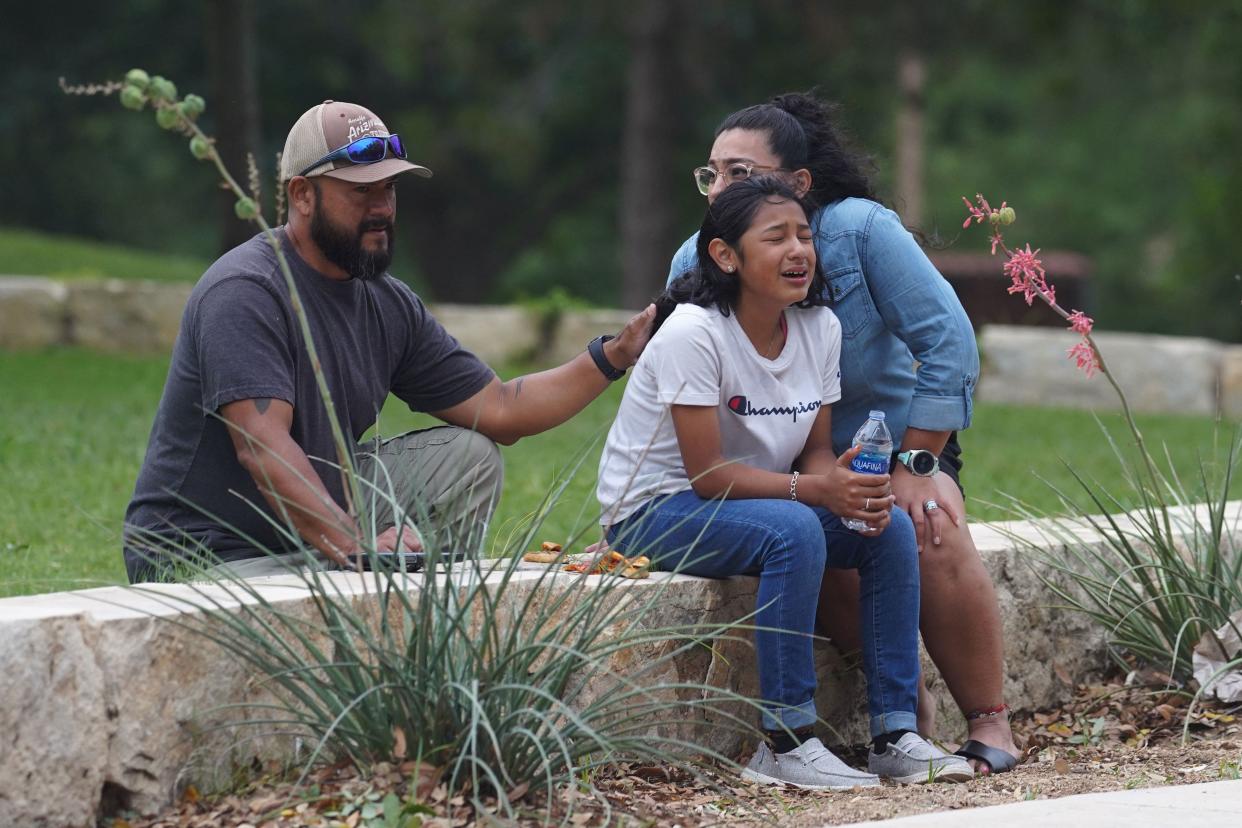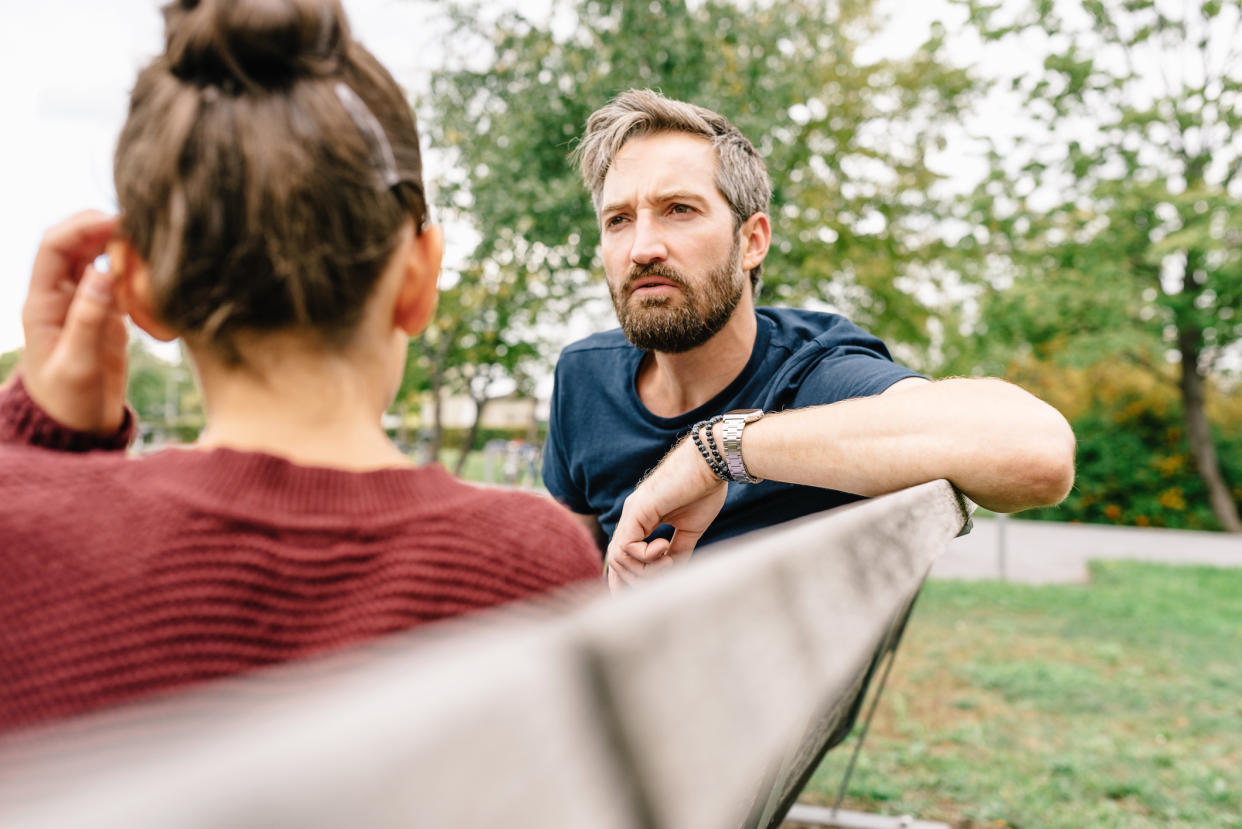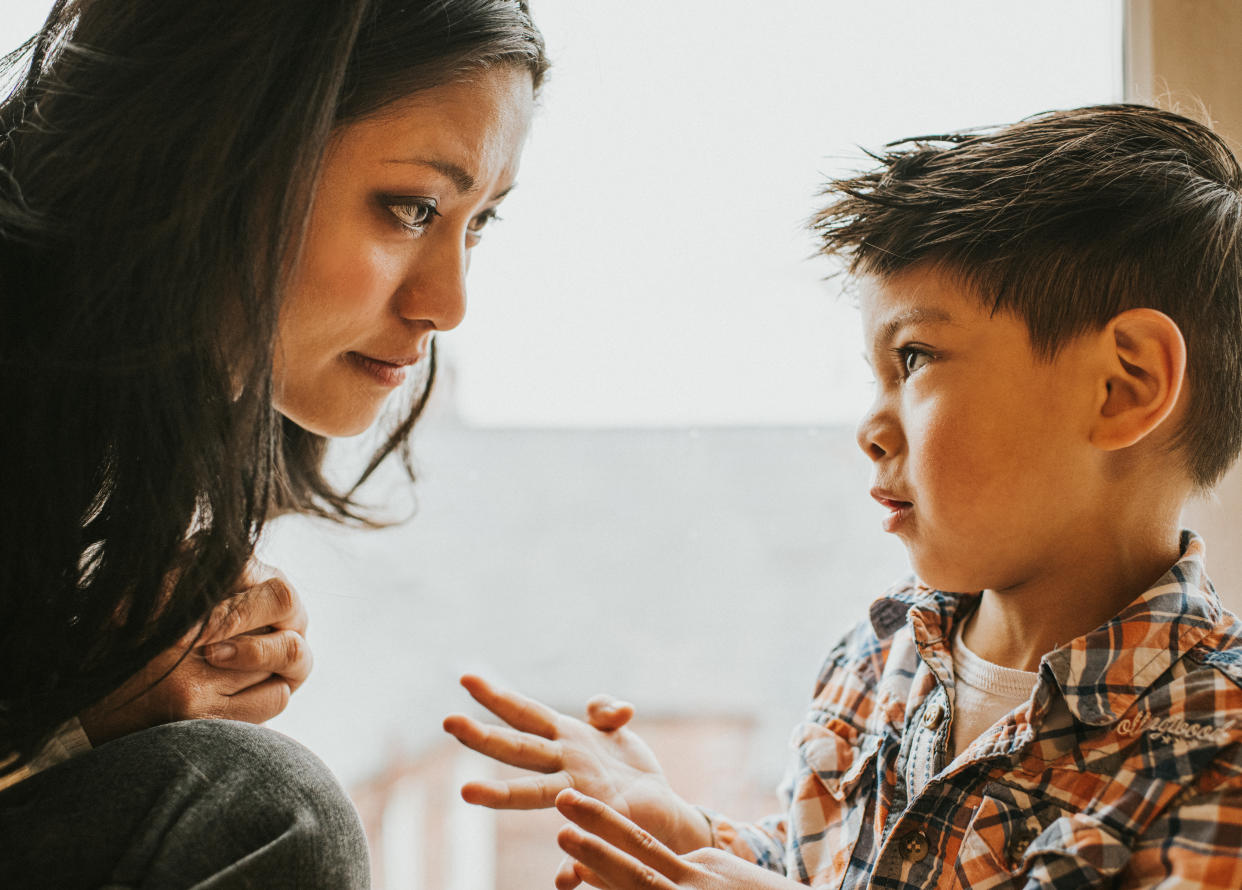How to talk to kids about school shootings
Tuesday's mass shooting at Robb Elementary School in Uvalde, Texas, left 19 children and two adults dead, making it one of the deadliest in U.S. history.
The devastating images of family members comforting children outside of schools have become all too familiar, part of a seemingly perpetual news cycle that has left many adults and children struggling with their emotions.
In 2022 alone, there have been 137 incidents of gunfire on school grounds, according to David Riedman, lead researcher at the K-12 School Shooting Database at the Naval Postgraduate School's Center for Homeland Defense and Security. The database documents every incident in the U.S. in which a gun is brandished or fired, and whether a bullet hits school property for any reason.
According to the Children’s Defense Fund, children and teens in the U.S. are 15 times more likely to die from gunfire than their peers in 31 other high-income countries combined.

Yahoo News spoke with Jill Emanuele, vice president of clinical training at the Child Mind Institute — a nonprofit for families struggling with mental health and learning disorders — about how adults and young people can cope with the kinds of extreme violence experienced in places like Uvalde.
(Some responses have been edited for length and clarity.)
How should a parent or guardian approach a discussion with a child when speaking about a school shooting? Is it OK for kids to see a full range of emotions like anger, sadness, grief?
I always say get yourself together first before you talk to your kids about it, but sometimes they catch you in the moment. So what do you do with that? If your child sees you react, the first thing you really don't want to do is try and start explaining what you have to process yourself. You have to first understand your own reaction, what you’re feeling, so you can say to your child, You know, I just saw something that just started bothering me and let me just think about it for a little bit and then I’ll talk to you about it, but mommy/daddy’s OK right now. Everything is OK right now.’” So, trying to remember that in this present moment, we are OK right now. The world may not be OK, but we are OK right now. That’s a way to buy some time to be able to get yourself together and have the reaction and be able to think about what you actually want to say to your child without having to just come up with something in the moment. You want to have already thought about it yourself and have felt the things you needed to feel. Then, when it comes to actually speaking to them, especially with the little ones, we really want to, in general, control the information, or be the first to talk to your child about it, because they are going to hear it. Especially in our world with social media, you can’t control everything. So you really want to just think about what do I actually want to tell them? What is necessary to tell them? Just think about what do I want to say that would help my child understand what’s happening?
At what age should these kinds of discussion occur and how complex should they be?
You want to really think about how to break it down on a developmental level as much as possible, but I also want people to think about their own children — what is your child capable of? Only you can answer that question. With kids who are not teenagers, you don’t need to give a ton of information. You want to hold them, hug them, cuddle them. You also need to give the facts and you need to really communicate that you are together, you are safe in this moment, and sometimes bad things happen in the world, but this is how we deal with it and this how we manage it. Keep it just to what is necessary. Some parents want to go into the whole story that happened, and try to control what’s going to happen. That gets the kids riled up and some kids react differently. Some kids shut down, some get scared. You really want to be able to have that dialogue with your kids so that you’re really listening to them and you're answering their questions. you’re really making sure that you’re having that communication with them so that they know that you’re OK.

What is the best way to navigate the conversation when a child goes into a 'rabbit hole of whys'?
You don’t have to have an answer for every question. You want be able to say, “I actually don’t know the answer to the question, like why that person did that. Sometimes people do bad things. I can’t tell you the reason, but what I can tell you is that, right now, we are OK. And I want to know how you’re feeling.” See how they respond. Ask questions and see if they’re willing to answer them. With little ones you just say, “Why? I don’t know,” and we have to be OK with that sometimes, not knowing. So, with smaller kids, give minimal information unless your child is a child that can handle that information. You may want to say that some kids and teachers were hurt or died, appropriate language like that.
What can parents do to cope with their own anxiety around school shootings?
There’s recognizing that how you feel is completely understandable and normal and say to yourself, How could it be any other way? Really ask yourself that, because these things are happening. We can’t stop that. The second thing is to reach out to your partner, to other parents, talk to people and see how they’re feeling, support one another, really talk about it. It’s also really important to find out in general what the school’s response is going be and how they’re going to handle a situation and what is the school’s long-term plan for keeping children safe. That might help to alleviate some anxiety so you have the sense that they’re doing something. But it may be that parents and teachers and schools need to talk to one another to figure out what is the best way to handle this together. Take action. Take action by talking. Take action by supporting. Take action by making a plan with everybody together.
How do you tell the difference between grief and trauma? Are they treated similarly?
Trauma is a reaction to an event in which someone is endangered, or witnesses someone being killed or hurt or something along those lines. Grief is a reaction to a loss. They’re similar in a way, but one is a reaction to fear and threat, and one is a reaction to a loss. Sometimes, a loss can be traumatic. That can happen. Professionally they’re treated a little differently. But in general, the thing that you really want to keep in mind is that with both, each person has a different reaction. Each person processes trauma, each person processes grief differently. And you need to think deeply about how they process that information and follow their lead in what they need in order to help them heal.

Even those living far away from this type of tragedy can experience a heightened fear of crime or uncertainty about their safety. What are some free or inexpensive health resources for kids and adults?
Child Mind Institute is a really excellent resource for parents. In terms of resources for adults who are just looking to get support around grief or trauma, is NAMI, which is the National Alliance for Mental Illness, a government organization, the American Psychological Association or the American Psychiatric Association, and SAMHSA, (Substance Abuse and Mental Health Services Administration) which is another government organization. Those are all online free mental health resources. Not treatment, but resources.
What are some warning signs that suggest a child may need more than just a talk and may need more comprehensive professional help?
The things that you want to keep in mind are changes and patterns in the behavior that you normally see your child have. Not in a day, but over a week or two, you see changes in behavior, changes in sleep and eating patterns, energy levels, perhaps withdrawing from friends, things that are really outside the realm of your child's normal behavior and are in excess of what you would like to see. And those changes persist for a while. If your child starts talking about dying and not wanting to live anymore, then you really do want to find some resources for help.

